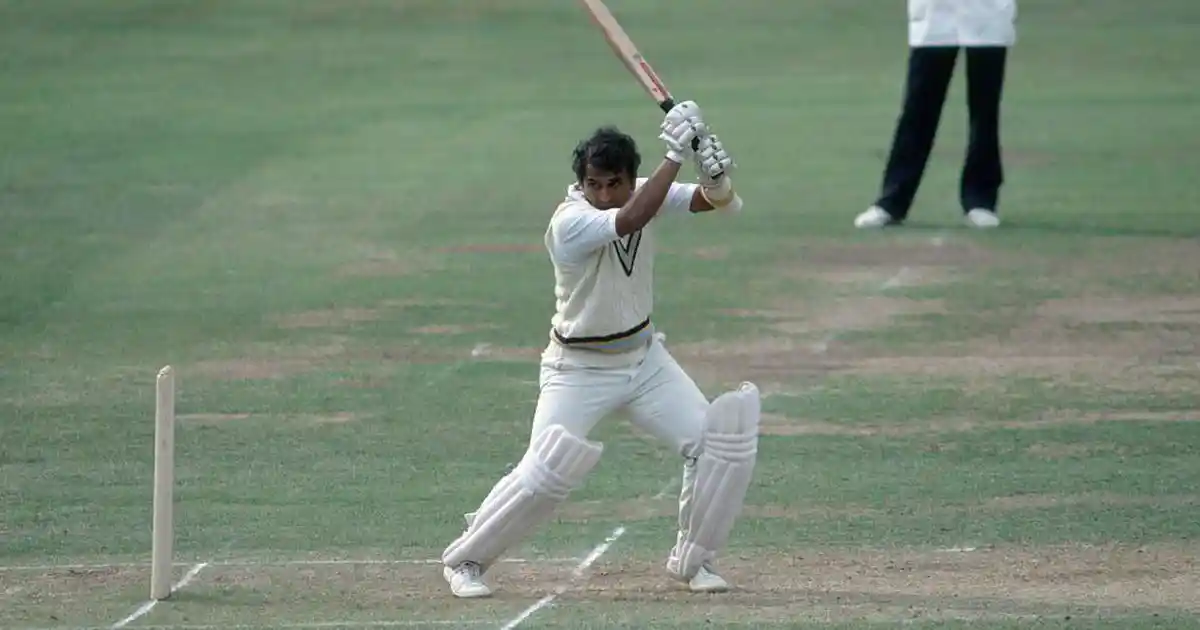Cometh the hour, cometh the man
Coming off the back of a World Cup victory in the year 1983, India was hosting the West Indies for an ODI and Test series. What was a gloomy series for the most part had a few moments of glitter, one of which was Sunil Gavaskar’s record-breaking 236.

Gavaskar's blistering knock of 236 guided India to another draw against the West Indies. Image credits: Scroll.in
The glory of the ’83 World Cup campaign was soon shunned in this follow-up series. The ODI series kick-started the summer, which the hosts won in comfortable fashion, whitewashing us 5-0. This was followed by 3 straight test defeats as well. 3 more games to go with nothing to show for themselves except for a stellar display of batting by the veteran Sunil Gavaskar. Across the 6-Test matches, Gavaskar amassed with two centuries, one of which went on the register him as one of the only players to have broken a record held by Sir Donald Bradman.
Three straight defeats in the first 3 tests were followed by two matches that the hosts were able to draw. In the Third Test hosted in Madras, West Indies, which had been dominant for the most part, continued their reign by posting 313 on the board in the first innings. Maninder Singh and Kapil Dev had 3 wickets apiece with the top-scorer being Jeff Dujon (62).
India’s final outing was as troubling as their most that summer, when both Anshuman Gaekwad and Dilip Vengsarkar got out on ducks. These early wickets saw the scorecard reading 92/5. The find among batters for the Indians, Sunil Gavaskar, again took it upon himself to lead the charge. He, and batting all-rounder Ravi Shastri bailed India out of trouble with a remarkable display of batting. They added 170 runs for the sixth-wicket before Shastri got out for 72.
It was an innings worthy of special mentions. Marshal and Holding were in the form of their lives and the momentum favored the visitors as well. The match was already headed towards a draw, so it was about the bowlers to get the batters back in the shed. When Gavaskar came out to bat on the final day, his score was 149 and it was pertinent that he bats through the day. That looked like a tough ask when the eighth wicket fell for 308. Syed Kirmani, who was celebrating his 34th birthday, proved to be a resilient force. They scored 143 runs together as India declared their innings at 451/8.
Gavaskar ended his innings at 236 not-out off 425 deliveries. He batted for a then record of 644 minutes and, in the course, registered another remarkable stat for himself. His innings of 236 was his 30th century. What made this record even more special was that the previous holder of the highest number of Test centuries was, none other than, Sir Donald Bradman. It was also the highest score by an Indian batsman at the time and stayed so till Laxman scored 281 in that infamous Kolkata Test against Australia.
The Little Master had some sweet words to say about this innings in his book Runs ‘n Ruins:
“I reached my century just after the drinks break with a single off Davis. I was told later that none of the West Indies team, except for Richardson who shook my hand, clapped the mark. Frankly, I was not even aware of that and in any case when more than 40,000 people are clapping, one does not miss the applause of ten people. Clive at the end of the over said, ‘Well played’. I know him to be one of the nicest cricketers around who seldom gets grumpy and so his congratulations were no surprise.”
Gavaskar’s greatness wasn’t limited to this landmark as he went on to score 4 more Test centuries, taking his tally to 34. Only 8 have managed to score as many or more in the game’s history.


